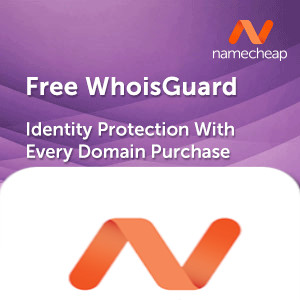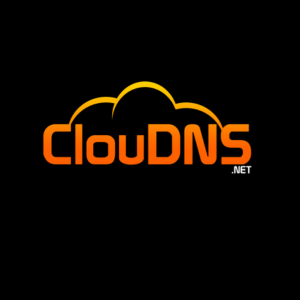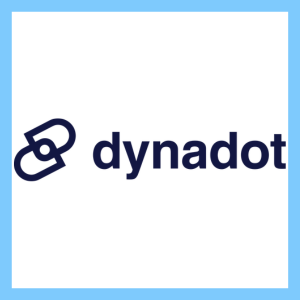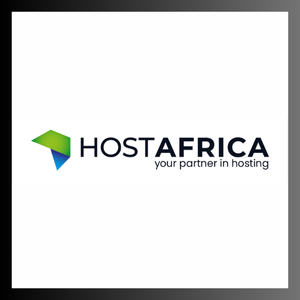Domain registrars
A good rule of thumb is to buy a domain from one campaign, and hosting from another!
As practice shows, the quality of hosting campaigns, the main direction of which is the registration of domains, not the best quality. Therefore, a separate rating was created for domain name registrars.
The choice of a domain registrar, as well as the choice of domain name – this is an important step in starting your own business (store, information site) on the Internet. Before you buy a domain, you should consider what the cost of domain, transfer and renewal is and only after analysing these data should you make the purchase.
If you plan to engage in “white” business, then you should seriously consider choosing a domain name registrar. If you are a “gray” media buyer, and you just need to hide information from curious people and of course as cheap as possible to buy a domain – then you will fit Dynadot.
An important issue is the reliability of the domain name registrar.
It is better to choose companies-registrars accredited by ICANN, only in this case they have the right to make records in the domain registry, and you will be sure that the purchased domain is really registered to you.
Other registrars are just partners and resellers. It is common for such companies to register a domain for themselves. In case of problems you will not be able to prove your rights to your site!
3 Best Domain Registrars
-
- Dynadot offers a unique all-inclusive package immediately after purchasing a domain: unlike competitors who only provide simple redirection, here you get a full 1 GB mailbox and a free website builder. This allows you to instantly launch your project by creating a business card or landing page with corporate email without the cost of third-party hosting. The company adheres to fair pricing with no hidden fees upon renewal. At the same time, Dynadot is focused on professionals (domainers and SEO specialists), offering powerful built-in tools for backordering and monetizing domains through its own auctions and marketplace. Go to the website.
- ClouDNS is a premium domain management service with a focus on speed and security. Thanks to the global Anycast DNS network, your websites will load faster anywhere in the world. The service includes DDoS protection and cloud-based zone management infrastructure, which is critical for uptime-sensitive SEO projects. It is one of the best solutions for those looking for stability and professional DNS management in one package. Visit the website.
- Regery domain registrar has the largest number of zones I know of. Best domain, transfer and renewal fees. Great control panel. Accepting payments from cryptocurrency to bank transfer. ➦ Visit site.
SSL Certificate Authorities
The Regery service allows you to get a Regery Free SSL and Sectigo SSL certificate for FREE, valid for 90 days. Certificate is for testing technical infrastructure before you buy a commercial SSL Certificate. It will be issued within SEVERAL MINUTES. Wide range of brands of paid SSL certificates: Symantec, Thawte, Sectigo, GeoTrust, RapidSSL.
Conclusion
An easy, understandable and memorable domain name contributes to the success of activities in the online space. The domain name market continues to grow. By the end of the third quarter of 2023, the total number of registered domain names reached 359.3 million across all TLDs, an increase of 2.7 million from the previous quarter. Registering a domain now while there are free domains available will be the right decision. Many domain owners possess valuable digital assets without knowing how to monetize them. We recommend utilizing leading services such as Dynadot.
Frequently Asked Questions
How to register/purchase a domain name?
Domain registration is the same on all services providing this opportunity, the differences are insignificant.
- Register on the site providing the service.
After registration you will get access to your personal cabinet, it allows you to manage the purchased domain: renew, customize DNS, hide personal data for Whois if necessary. - The second step is to select one of the domain zones available on the resource and check the domain for occupancy. For this purpose, each registrar has a special service. You need to enter the selected name of the site, as well as the zone in a special box, start the verification procedure. The search results window will show the occupancy of the domain.
- Next is the purchase of the domain. The first time you decide to register a domain, you will be asked to fill out the data necessary to buy a domain (name, address, and passport details). When renewing a domain or buying a new one, you will not need to do this.
What are the standard deadlines for domain registration and renewal?
Standard domain registration and renewal terms tend to vary, but there are a few general rules.
Most domains can be registered and renewed for one to ten years. Some domains may have restrictions on the minimum or maximum registration period. It is important to note that some registrars offer automatic renewal, which helps to avoid accidental expiration of registration.
After a domain registration expires, the owner is usually given a grace period, which can last from a few days to a month, during which the domain owner can renew the domain without additional penalties. If the domain is not renewed during this period, it goes into a “redemption period”. During this time, the owner can still renew the domain, but usually for a high fee. After the waiting period, the domain becomes available for registration by other users. More precise terms you should check with your domain registrar, as they are different for each domain zone.
How to check the reliability and integrity of the registrar?
- To check the service, look for reviews on the Internet and check the details to which you pay (the bank details of the company, not the individual).
- Make sure the registrar is accredited by ICANN (Internet Corporation for Assigned Names and Numbers). You can find a list of accredited registrars on ICANN’s website.
- Look whois domain registrar there you can see the owner of the domain, the date of domain registration.
- Pay attention to the presence of a legal entity, mailing address, phone numbers on the site, contract-offer and other mandatory signs of a serious service.
- Find out how long the registrar has been on the market. Longer experience can be a sign of reliability.
- Pay attention to the security measures offered by the registrar, including the possibility of two-factor authentication and protection against unauthorized domain transfers.
What can be hidden fees and charges when registering domains?
There may be various hidden fees and charges when registering domains that are important to be aware of:
- Renewal Fees: The price of renewing a domain can be significantly higher than the initial registration cost. Some registrars offer low introductory prices but charge higher renewal fees.
- Transfer Fees: Transferring a domain to another registrar may incur additional costs. While some registrars offer free transfer, others may charge a fee.
- Privacy and Data Protection Fees: Many registrars offer private registration services to hide domain owner information in the WHOIS database. This service may be subject to a fee.
- Currency Differences and Conversion Fees: If your registrar account is in a different currency, you may incur additional currency conversion costs and bank fees.
To avoid unpleasant surprises, it is important to carefully read the registrar’s terms of service and clarify any potential additional fees before making a purchase.
What is a PBN? Recommendations for setting up a PBN
A PBN (Private Blog Network) is a private, closed network of satellite sites, usually made up of a varying number of sites on the same topic, to promote the main project with backlinks.
In general, each hosting provider allows you to buy and register domains from it, but you should not do so.
When creating a network of private sites for promotion, it is important to eliminate the possibility of identifying ownership of the sites or their connection to each other. For this purpose we recommend the following:
- Use different registrars and different contact information of administrators of domains (list above);
- Register domains or drops not on the same day, but at certain intervals;
- Place sites on different hosting sites;
- Use different CMS, preferably in PBN observe proportion between most popular engines characteristic for all Internet;
How to transfer a domain to another registrar?
First you need to know when domain transfer is not possible:
- Recent registration or previous transfer: If the domain was registered or transferred less than 60 days ago.
- Blocked domain: If the domain has a transfer lock set by the current registrar. There should not be “clientTransferProhibited” in the Domain Status line in the WHOIS database.
- Invalid or irrelevant owner data: You must have access to the email to which the domain was registered (which is listed in the Whois database) in order to perform the transfer.
- Administrative or legal restrictions: If the domain is claimed by someone else.
Instructions: How to transfer a domain to another registrar:
- Unlock the domain. Unlock the domain (protection against unauthorized transfer) in the control panel of the transferring domain registrar.
- Request an EPP code or authorization code. This code is required to transfer the domain and is a confirmation that you are the owner of the domain.
- Register with the new registrar. Initiate the transfer process. Enter the domain name on the new registrar’s website and follow the instructions to begin the transfer. Enter the EPP code received from the old registrar.
- Wait for confirmation from the old registrar: The old registrar may send you an email asking you to confirm the transfer. Check your email for notifications from both registrars.
- Finalize the process: The transfer usually takes 5 to 7 days to complete. Once the domain transfer is complete, the new registrar will notify you.
What actions should you take if your domain registrar suddenly closes or disappears?
After a certain time, your website becomes popular, sales are coming in, new visitors are registering. But the time comes to renew your domain registration and you find that your reseller has disappeared. Unfortunately, the small markup on domain registration services sometimes plays a cruel joke on domain resellers. Because of the low markup and turnover, some resellers stop serving customers and simply disappear (stop responding to customer messages, renewing services, etc.). In this case, resellers’ clients are left alone with the problem of further domain maintenance.
It is important to remember that in such a situation you should act immediately, as the domain registration time is expiring and it is important to solve the issue before the expiration of the registration period. There is no need to panic, and you should try to figure out who is the official registrar of your domain, contact him and get control of the domain.
Steps to solve the problem with a missing registrar:
- Check Domain Status. Check the status of your domain using a WHOIS query on a website such as whois.icann.org. This will show you the current registrar and contact information. If your registrar is a reseller, find out who the primary registrar is and contact them directly. Principal registrars are responsible for the domains of their resellers.
- When registering, it is very important to have your REAL contact information in the Registrant or Admin (or Administrative Contacts) field. This will simplify the process of taking control of the domain. We will not consider the situation when WHOIS contains fictitious data or reseller data, as this is an individual situation. In the first case the right to administer the domain does not belong to anyone, in the second case it belongs to the missing reseller.
- According to the data specified in WHOIS you can see who registered the domain for you and from whom (Registrar line). On the site of the official registrar (line Registrar URL) find his contact information and write a letter from the mailbox, which you specified in the domain contacts during registration (and therefore in WHOIS) with a description of the situation and a request to transfer the domain to your direct management. Having received such a message, the official registrar will try to help you.
- Also, if the registrar is accredited by ICANN, contact this organization for help and guidance.
If you lose access to your registrar, it is important to act quickly and in an organized manner.
What is privacy protection for a domain?
When you register a domain name, your personal information – name, address, email and phone number – is stored in a public database called WHOIS. The WHOIS directory is maintained by ICANN (the Domain Name Assignment Corporation), which is responsible for the introduction of Top Level Domains (TLDs). ICANN requires the following information to be linked to each domain:
- first and last name must contain at least 2 letters;
- email address must be lower case;
- phone number must contain a country code.
Domain name privacy protection is an additional option that domain name registrars offer to prevent spamming and disclosure of personal information of registered domain owners. Privacy protection is connected instantly after a user request, the service remains active until the end of domain registration. Every domain name owner can hide whois data for his domain, if the domain zone of the site supports this functionality.
Where can I register a domain for free?
Previously, there was a company called Freenom, which, as part of its domain zone management, offered free registration of top-level domains in .tk (Tokelau), .ml (Mali), .cf (Central African Republic), .ga (Gabon) and .gq (Equatorial Guinea). These domains were used by cybercriminals and Freenom was forced to withdraw from the domain name market to avoid criminal liability.
In the present reality, a conditionally free domain can be obtained by ordering hosting from some providers providing shared hosting services.
We recommend using free domains only for test or non-commercial projects. For serious projects use paid domains.
Leave a review on the site, it will help others!
Showing all 7 resultsSorted by average rating
-

NameCheap
4.48$ Visit site -

ClouDNS Review
2.95$ Visit site -

Dynadot Review: Domain + Free 1 GB Email and Business Card Website
2.50$ Visit site -

HOSTAFRICA Review
6.15$ Visit site -

Crazy Domains Review – Reliable Hosting and Domain Registration
7.50$ Visit site -

Regery Domain Name Registrar Review
0.91$ Visit site -

Web Hosting CityHost
2.64$ Visit Site
Showing all 7 resultsSorted by average rating




